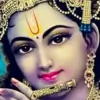Originally posted by: luv_sakshi
@abhijitbasu:
Sir, could you please throw some light on your book - Marvels & Mysteries of the Mahabharata? I believe the character of Yudhishtir carries most weightage in your book..why have you chosen Yudhishtir in particular as your central character? Isn't Krishna central to the entire Epic?
Further, some comparisons have been made to Greek Mythology as well in the book..any particular reason for making the comparison specifically with Greek Mythology along with other ancient texts?
Yes, Yudhishthira to my mind is the undeclared secular-dramatic protagonist of the Mb. No doubt Krshna, as the book also discusses, is the transcendental mover and shaker of the epic, as the
yugapurush -- the God who constrains himself in human form to guide the events along their ordained course.
There are valid reasons to consider Yudhishthira to be the central character of the human drama of the Mb. Without him and his claim of primogeniture there would have been no Kurukshetra war. In Drona-Parva, Krshna chides Arjuna for his impetuous action in following the letters of a certain pledge and lifting his sword against his elder brother, because with Y dead, Arjuna would have had none to fight for. And, of course, Y, and he alone, figures in the epic's sublime denouement of
svargaarohana. Yudhishthira is the great epic's
jnana yogi, the Philospher-King, who predated Plato by many centuries. But, he has also some striking contrarieties, as a Kshatriya prince with a Brahmana disposition, ever conflicted by his natural inclination for peace and his class duty to fight to win, not always by pure means, as the leader of his wronged royal line. He is subject to depressive indecision, but 'to be or not to be' is never a question with him. Rather, he continues 'being' from this world to the beyond. He has his limitations as a warrior, but has the ever-loyal Bheema and Arjuna to more than compensate those limitations. But he excels in acquiring knowledge, from a galaxy of sages. In that regard he is unique -- an itinerant prince-pilgrim, who shines as a knowledge-seeker even in contra-distinction to the great Rama. He saves his brothers in two crucial tests by marshalling that knowledge to answer unerringly strings of questions, first put by the accursed serpent Nahusha and more importantly, by his disguised pater, Lord Dharma. The Yakshna-prashnas indeed are the essence of the epic as a treasure of liberated wisdom.
Having scaled such heights of pure wisdom, it may seem hard to reconcile some of his war-time actions to follow. As a practical war-leader, expediency at times seems to be more important to him than ethics. But after the battle, we again find the pilgrim Yudhishthira, now overwhelmed by a burden of guilt-laden grief. Y after the war is surely the most penitent character, not only in the Mb, but in all the world's epics. This unique repentance cleanses him of all worldly impurities and finally he lifts himself to the highest peak of human greatness, succeeds in his ultimate transcendental test and earns the unparalleled distinction of entering heaven in his bodily form.
As regards the other point of trans-civilizational comparisons, I find the subject quite intriguing -- as if some telepathy was at work in making ancient civilisations react alike to circumstances. Not only Greek, I have drawn comparison with the Semitic literature, chiefly the Old Testament, but also with Islamic and Jewish thoughts. The book's last chapter, called 'Epics and Epics', highlights some strange similarities between our two epics, the Sumerian Epic of Gilgamesh, and the two Homeric epics. However, you are right in the sense that the Greek cognation seems to be the most striking. Just think of Megasthenes' description of Krshna (with Balaram) as the Indian Hercules, with the subsequent etymological derivation as Hari-kul-esh!
Edited by abhijitbasu - 11 years ago



























